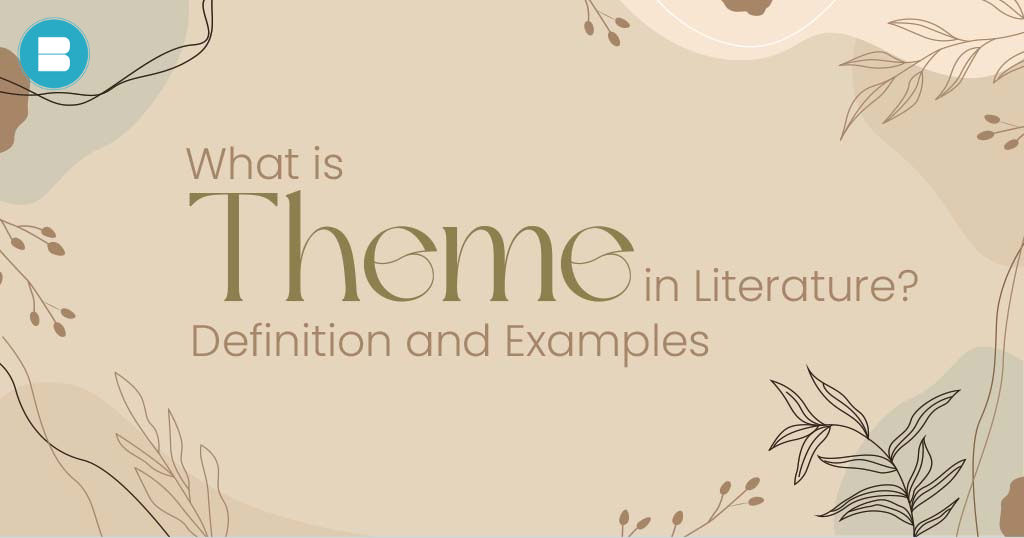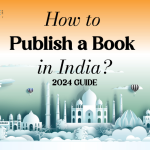Theme in literature is an essential aspect of any story. It refers to the central idea or underlying message that the author conveys through the narrative. Themes in literature can be broad or specific, and they can be universal or specific to a particular time, place, or culture. In this blog, we will explore the definition of theme in literature and provide examples to help you understand this crucial element of storytelling.
You may also read: What is Situational Irony? Definition, Examples and Tips for Writers
What is Theme in Literature?
Theme in literature refers to the central idea or underlying message that the author conveys through the narrative. It is a concept that is essential to any story, as it helps readers to understand the author’s perspective and the deeper meaning that the story communicates. While the plot, characters, and setting are all important elements of a story, the theme is what gives it meaning and resonance.
One example of a theme in literature is the idea of redemption. Many stories explore the concept of redemption, where characters seek to atone for past mistakes and find a way to make amends. This theme can be seen in literature from all cultures and time periods, as it is a universal human experience.
For instance, the novel “The Kite Runner” by Khaled Hosseini is a story that revolves around the theme of redemption. The story is set in Afghanistan and follows the life of a young boy named Amir, who is haunted by guilt over a past mistake that he made as a child. Amir’s best friend Hassan is brutally assaulted, and Amir does nothing to stop it. This event haunts Amir throughout his life, and he spends the rest of the story trying to find a way to make things right.
The theme of redemption is evident throughout the story, as Amir seeks to atone for his past mistake and find a way to make things right with Hassan. He returns to Afghanistan, where he faces danger and uncertainty in his efforts to find Hassan’s son, Sohrab, and bring him to safety. Along the way, Amir is forced to confront his past and come to terms with the mistakes he has made.
Another example of a theme in literature is the idea of the search for identity. Many stories explore the concept of identity, where characters seek to find their place in the world and understand who they are. This theme can be seen in literature from all cultures and time periods, as it is a universal human experience.
One example of a story that explores the theme of identity is the novel “The Catcher in the Rye” by J.D. Salinger. The story follows the life of a young man named Holden Caulfield, who is struggling to find his place in the world. Holden is disillusioned with the world around him and feels disconnected from the people and events that surround him.
Throughout the story, Holden’s search for identity is a central theme. He struggles to understand who he is and where he fits in, and he rebels against the societal norms that he sees as confining and restrictive. Holden’s journey of self-discovery is a powerful example of the theme of identity, as he seeks to find his place in the world and make sense of his own experiences.
You may also like: How to Publish a Book | Publish Your Book | BlueRoseOne
Examples of Themes in Literature:
Here are some common themes in literature that you may have encountered in your reading:
- Love: Love is one of the most common themes in literature, and it can take on many different forms and meanings depending on the story being told. One way that love is often explored in literature is through the joy and happiness that comes with falling in love. Many stories focus on the excitement and wonder of two people who are just beginning to discover their feelings for each other. This can be a powerful and transformative experience for the characters involved, and it can create a sense of hope and optimism for readers.
At the same time, love can also be explored through the pain and heartbreak that often accompanies it. Many stories focus on the difficulties and challenges that arise when relationships falter or fail, and the emotions that come with these experiences can be deeply felt by readers. This can be especially true when characters are forced to confront their own flaws and shortcomings, and the ways in which these shortcomings can affect their relationships with others.
Ultimately, the theme of love in literature is a complex and multifaceted one, and it can be explored in many different ways depending on the author’s perspective and the story being told. Whether through the joys of new love or the pain of heartbreak, love is a universal human experience that resonates with readers and helps to make literature a powerful and meaningful art form. - Loss: Loss is a common theme in literature that often explores the emotional pain and grief that comes with the experience of losing someone or something important. This can take many different forms, including the loss of a loved one, a relationship, or a way of life. In many cases, loss is an unavoidable and inevitable part of the human experience, and it can have a profound impact on the way we view ourselves, our relationships with others, and the world around us.
One of the most common forms of loss in literature is the loss of a loved one. This can be a powerful and emotional experience that can leave characters feeling overwhelmed and alone. Whether it is the death of a parent, a child, or a spouse, the pain of loss can be a difficult and ongoing struggle for characters to deal with. In many cases, the experience of loss can lead characters to question their own mortality and the meaning of life itself.
Another form of loss that is often explored in literature is the loss of a relationship. This can include the end of a romantic relationship, the loss of a close friendship, or the breakdown of a family unit. The emotions that come with these experiences can be just as intense as those associated with the loss of a loved one, and characters may struggle to come to terms with their feelings of sadness, anger, and betrayal.
Finally, loss can also take the form of the loss of a way of life. This can include the loss of a job, a home, or a way of living that has been important to a character’s identity. In these cases, the experience of loss can be particularly challenging, as characters may be forced to confront their own sense of self-worth and purpose in the world. - Power: Power is a complex and multifaceted theme that has captured the imagination of writers and readers throughout the ages. From the ancient myths of gods and heroes to the modern stories of political intrigue and social unrest, power has been a constant presence in literature, inspiring countless tales of ambition, corruption, and redemption.
One way that power is often explored in literature is through the corrupting influence that it can have on those who wield it. Many stories focus on characters who begin with good intentions but are gradually consumed by their own desire for power, leading them down a path of betrayal and destruction. This can be a powerful and cautionary tale, warning readers of the dangers of unchecked ambition and the corrupting influence of power.
At the same time, power can also be explored through the struggle to gain it. Many stories focus on characters who are driven by a desire for power, whether it is for personal gain or to help others. These characters may face countless obstacles and challenges along the way, but their determination and perseverance can inspire readers and offer a glimpse of hope in a world that often seems chaotic and unpredictable.
Finally, power can also be explored through the abuse of power, whether it is in the form of political oppression, social injustice, or personal violence. These stories can be difficult and challenging to read, but they offer an important reminder of the ways in which power can be used to harm others and the responsibility that comes with its use. You may also like: What Is Contemporary Fiction? Definition, Themes with Examples
- Identity: Identity is a rich and complex theme that has fascinated writers and readers for centuries. Whether exploring the journey of self-discovery, the struggle to fit into a particular community, or the challenge of defining oneself in a world that often tries to limit and categorize us, identity offers a powerful lens through which to view the world around us.
One way that identity is often explored in literature is through the coming of age story. These stories focus on characters who are grappling with the challenges and complexities of growing up, trying to find their place in the world and define themselves in the face of social and cultural pressures. Whether it is the awkwardness of adolescence or the uncertainty of young adulthood, these stories offer a powerful reminder of the universal experience of grappling with identity.
At the same time, identity can also be explored through the struggle to fit into a particular community. Whether it is the challenge of navigating racial, ethnic, or cultural differences or the struggle to find acceptance in a particular social or professional group, these stories offer a powerful reminder of the ways in which identity can shape our experiences and interactions with others.
Finally, identity can also be explored through the lens of sexuality and gender. These stories can be particularly powerful, as they offer a glimpse into the challenges and complexities of navigating one’s own identity in the face of societal norms and expectations. Whether it is the journey of self-discovery, the struggle to find acceptance, or the challenge of asserting oneself in the face of prejudice and discrimination, these stories offer a powerful reminder of the importance of embracing one’s own identity and standing up for what one believes in. - Redemption: Redemption is a theme that speaks to the human experience on a deep and profound level. It is the story of characters who have fallen from grace and are seeking a way to make things right, to atone for their mistakes, and to find forgiveness and redemption.
In literature, redemption can take many forms. Sometimes it is a journey of self-discovery, where characters must confront their past mistakes and learn to live with the consequences. Other times it is a story of second chances, where characters are given an opportunity to make things right and prove themselves worthy of forgiveness.
One of the most powerful examples of redemption in literature is found in the classic novel “Les Miserables” by Victor Hugo. The main character, Jean Valjean, is a former convict who has spent 19 years in prison for stealing a loaf of bread. Upon his release, he is unable to find work or acceptance in society, and he is forced to turn to a life of crime once again.
But despite his past mistakes, Valjean is given a chance at redemption when he meets a young girl named Cosette and takes her under his wing. Through his love and care for Cosette, Valjean is able to turn his life around, becoming a respected member of society and a hero to those in need.
In conclusion, theme in literature refers to the central idea or underlying message that the author conveys through the narrative. It is not the same as the plot or the characters, and it is often expressed implicitly rather than explicitly. By understanding the theme of a story, readers can gain a deeper appreciation of the author’s perspective and the message they are trying to convey.
We hope that this blog has helped you understand the definition of theme in literature and provided you with examples to help you identify themes in the stories you read.
You may also like: How Can I Get a Book Published?
Publish your book for free with BlueRoseONE and become a bestselling author. Don’t let your dream of becoming an author fade away, grab the opportunity now and publish your book – be it fiction, non fiction, poetry or more.
















